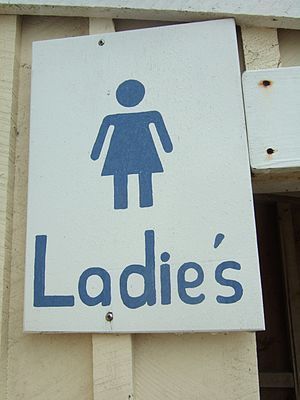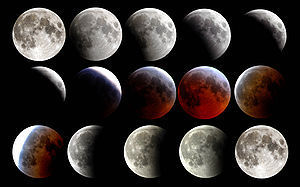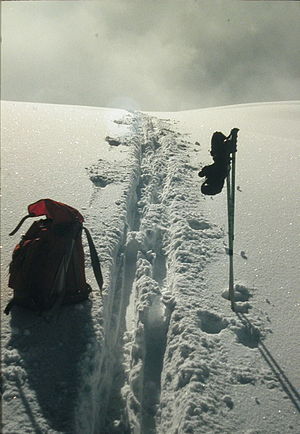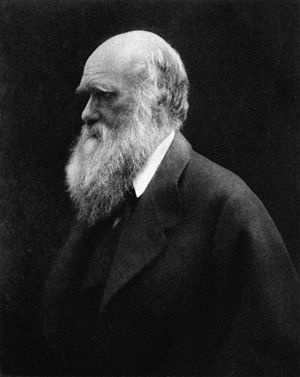Stuart Aken's Blog, page 345
October 4, 2010
Do you Lay or Lie?
[image error]
Image via WikipediaAway from the desk and all things computer for the moment. So, I'm going to keep things going with scheduled blogs dealing with the language we use as writers. I hope you'll forgive me if I don't reply to any comments for the time being, but I'm having a very well-earned (I think so, anyway) rest from work for a couple of weeks.
Do you Lay or Lie?
lay: to place in a horizontal position, to put down, (always followed by an object). 'When you lay the table, please ensure the cutlery is in the right order.'
lie: to recline, to be or remain in a prone position. 'After an exhausting photo shoot, the glamour model had to lie down for a rest .' When using the present tense only, use lay if you can replace the word in question with put. There's a great and simple piece on this issue at http://www.writersrelief.com/blog/post/LieLay-Lesson.aspx.

Do you Lay or Lie?
lay: to place in a horizontal position, to put down, (always followed by an object). 'When you lay the table, please ensure the cutlery is in the right order.'
lie: to recline, to be or remain in a prone position. 'After an exhausting photo shoot, the glamour model had to lie down for a rest .' When using the present tense only, use lay if you can replace the word in question with put. There's a great and simple piece on this issue at http://www.writersrelief.com/blog/post/LieLay-Lesson.aspx.

Published on October 04, 2010 00:22
October 3, 2010
When to use Its or It's
 Image via Wikipedia
Image via WikipediaBecause I'm away from all things computer, I'm keeping the blog going with scheduled posts about the language we use as writers. I hope you'll forgive for failing to reply to comments for the time being, but I'm having a well-earned break from work.
When to use Its or It's
its: the possessive form of it – this possessive doesn't use the apostrophe, as you would for a named person, but follows the convention for other pronouns, e.g. your - yours, their – theirs. 'The dog wandered into the kitchen, wondering where its dinner might be.'
it's: the contraction for it is or it has. 'I'd say it's an ill wind that..., but it's been said before.'

Published on October 03, 2010 00:09
October 2, 2010
Whether You Imply or Infer
 Image via Wikipedia
Image via WikipediaAway from the desk and all things computer for the moment. So, I'm going to keep things going with scheduled blogs dealing with the language we use as writers. I hope you'll forgive me if I don't reply to any comments for the time being, but I'm having a very well-earned (I think so, anyway) rest from work for a couple of weeks.
Whether You Imply or Infer
imply: to suggest, to express or state indirectly. 'When you imply that I came by this article less than honestly, you call me "thief".'
infer: to establish by deduction, to conclude by reasoning. 'I infer from your overblown protestations that you are indeed guilty.'
The attached picture bears no relation to the topic. I just like it.

Published on October 02, 2010 03:47
October 1, 2010
Using The Dreaded Of for Have:
 Image via Wikipedia
Image via WikipediaAway from my desk and all things computer. So, keeping things going with scheduled blogs on the language we use as writers. Please forgive me if I don't reply to any comments for the time being, but I'm having a very well-earned rest from work. Be back in person in the second week of October.Using The Dreaded Of for Have:You all know this one. It's a result of people writing the way they speak. So, someone says, 'I would've done it differently if only I'd've known better.' And then they write this as, 'I would of done it differently if only I'd of known better.' Even the much lauded F Scott Fitzgerald used this in dialogue in The Great Gatsby; I cringed every time I saw it.Please, use 'have' or its contracted form, "'ve" and not 'of', which is not a verb but a preposition connecting words.End of minor rant.

Published on October 01, 2010 02:39
September 30, 2010
Whether to use Fewer or Less
 Image via Wikipedia
Image via WikipediaAway from the desk, I've scheduled blogs dealing with language. I hope you'll forgive me if I don't reply to any comments for the time being, but I'm having a very well-earned rest from work for a couple of weeks.
Whether to use Fewer or Less
fewer: a comparative quantifier used with plural items. 'There were fewer girls at George's party than he had hoped would attend, meaning he had less opportunity to get laid.'
less: not as great in quantity or amount. 'There has been less snow this winter, so the ski slopes have had fewer skiers.'

Published on September 30, 2010 09:31
September 29, 2010
Whether to use Farther or Further.
 Image via Wikipedia
Image via WikipediaAway from the desk and all things computer for the moment, but keeping things going with scheduled blogs about the language we use. I hope you'll forgive me if I don't reply to any comments for the time being, but I'm having a well-earned (I think so) rest from work for a couple of weeks.
Whether to use Farther or Further.
farther: more distant in space, time or degree. (these two have become more or less interchangeable, but 'further' is more often the choice when referring to degree). 'Charles Darwin's theories go much farther back in time than those of the Creationists.'
further: more distant, especially in degree, to a greater extent. 'Your arguments are specious and move you further from the truth.'

Published on September 29, 2010 09:16
September 28, 2010
Whether to use Compliment or Complement
[image error]
Image via Wikipedia
Away from the computer, so I've scheduled blogs dealing with the language we use as writers. I hope you'll forgive me if I don't reply to any comments for the time being, but I'm having a very well-earned (I think so, anyway) rest for a couple of weeks.
Whether to use Compliment or Complement
compliment: to praise, express admiration. 'When
complement: to make complete, to supply what is wanted. 'The fresh salmon steak needed a tossed salad to complement it.'

Away from the computer, so I've scheduled blogs dealing with the language we use as writers. I hope you'll forgive me if I don't reply to any comments for the time being, but I'm having a very well-earned (I think so, anyway) rest for a couple of weeks.
Whether to use Compliment or Complement
compliment: to praise, express admiration. 'When
complement: to make complete, to supply what is wanted. 'The fresh salmon steak needed a tossed salad to complement it.'

Published on September 28, 2010 09:06
September 27, 2010
When to use Choice, Choose or Chose
 Image via Wikipedia
Image via WikipediaAway from all things computer to celebrate marriage to my wonderful wife, Valerie, for 22 years today. I'm keeping things going with scheduled blogs dealing with the language we use as writers. I hope you'll forgive me if I don't reply to any comments for the time being, but I'm having a very well-earned (I think so, anyway) rest from work for a couple of weeks. And, today, enjoying a special meal and a quiet drink with the woman I love.
When to use Choice, Choose or...
Published on September 27, 2010 02:00
September 26, 2010
Between or Among
 Image via WikipediaAway from all things computer at present. So, I'm keeping things going with scheduled blogs dealing with the language we use as writers. I hope you'll forgive me if I don't reply to any comments for the time being, but I'm having a very well-earned (yes, really!) rest from work for a couple of weeks.
Image via WikipediaAway from all things computer at present. So, I'm keeping things going with scheduled blogs dealing with the language we use as writers. I hope you'll forgive me if I don't reply to any comments for the time being, but I'm having a very well-earned (yes, really!) rest from work for a couple of weeks.When to use Between or Among.
between: involving members of a group, two items that are related, with shares to each, in the interval, (strictly speaking, if something is...
Published on September 26, 2010 07:14
September 25, 2010
Beside or Besides
 Image via WikipediaAway from the desk and all things computer for the moment. So, I'll keep things going with scheduled blogs dealing with the language we use as writers. I hope you'll forgive me if I don't reply to any comments for the time being, but I'm having a very well-earned (I think so, anyway) rest from work for a couple of weeks.When to use Beside or Besides.
Image via WikipediaAway from the desk and all things computer for the moment. So, I'll keep things going with scheduled blogs dealing with the language we use as writers. I hope you'll forgive me if I don't reply to any comments for the time being, but I'm having a very well-earned (I think so, anyway) rest from work for a couple of weeks.When to use Beside or Besides. beside: at the side of, next to. 'The was clown was beside himself with excitement.' 'The house beside the coast overlooked t...
Published on September 25, 2010 06:55



